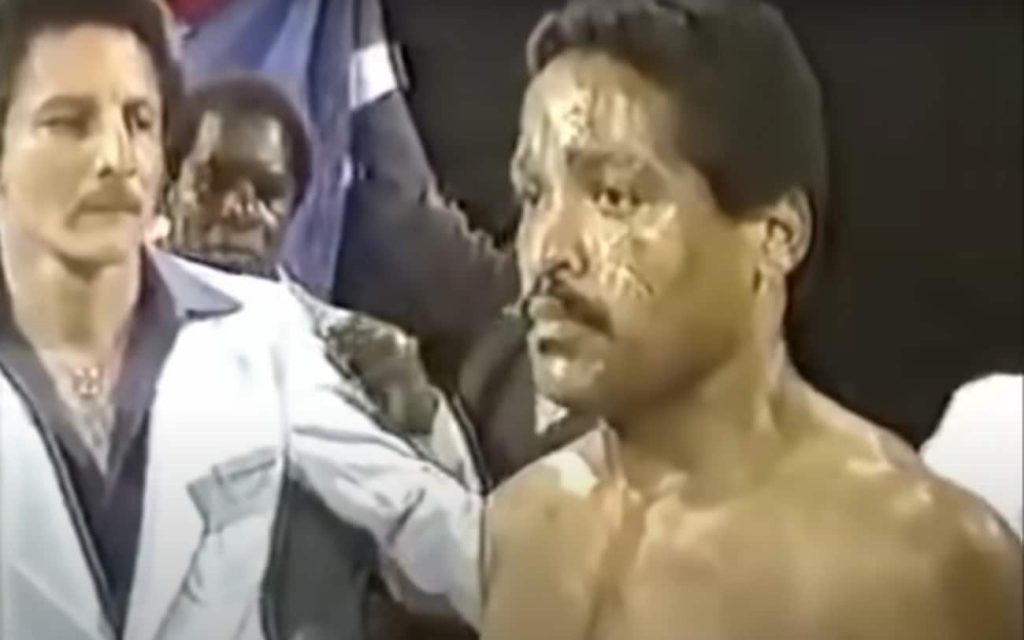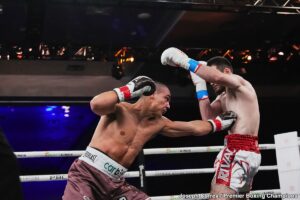Mike Tyson made incredibly rapid progress as a boxer, as did Floyd Patterson. And one or two other special fighters. But no man, indeed no boy, ever took a swifter route to the top than Puerto Rican boxing wizard Wilfred Benitez. It was on this day back in 1976 when “El Radar,” as uncannily defensive master Benitez was known as, dethroned accomplished world champion Antonio Cervantes.
The fight took place in San Juan, and Benitez, a mere 17 years and five months old, snatched Cervantes’ WBA 140 pound title. It was a split decision win Benitez walked away with – scores being 148-144 and 147-142 for the new champ, the third judge somehow scoring the fight at 147-145 for Cervantes – but everyone aside from that one official was suitably impressed, indeed blown away by the teenager’s sheer brilliance.

Cervantes, who was making the 11th defence of the title he had won by beating Alfonso Frazier to win the belt back in 1972, had seen off superb fighters/boxers/technicians such as Nicolino Locche (this in a revenge win) and Esteban De Jesus, yet he was bamboozled by Benitez.
30 year old Cervantes held his own with Benitez for a few rounds – before Wilfredo’s speed and unfathomable skills made the fight his show. Benitez jabbed like a master, while the clumsy attempts at landing a shot on his challenger’s elusive chin made the accomplished Cervantes look, well, clumsy. How was a teenager doing this! Benitez didn’t have things his own way all night, as Cervantes dug in and rallied in some of the later rounds. But it was a long and somewhat frustrating night for Cervantes, while it was the coming out party of coming out parties for the sizzling “Wonder Kid.”
Benitez, to take a line from Cassius Clay, shook up the world – the 140 pound boxing world. Benitez, who would retain his 140 pound title three times, would go on to defeat superb fighters such as Carlos Palomino, Maurice Hope and Roberto Duran. In total, Benitez would win world titles at three weights: 140, 147 and 154. Unfortunately, too many fans remember Benitez best for his losses to Sugar Ray Leonard and Thomas Hearns.
Also a thing of bad fortune is the fact that Benitez, who carried on for far too long and often barely trained at all for a fight, big or not so big, fell into seriously ill health after finally hanging up the gloves in 1990. Benitez was still a young man when he had become a shot fighter (his heavy losses to Matthew Hilton, Pat Lawlor and, in his final fight, Scott Papasodora are incredibly hard to watch), and he was still a young man when his health and standard of life completely fell apart. Today, Benitez needs round the clock care and he is wheelchair bound. A shockingly sad sight indeed.
Yet we must remember the great days, the glory days – when Wilfredo Benitez was one of the finest boxers on the planet. If things had worked out just a little bit differently, Benitez might today be recognised as one of the greatest of the greats, while at the same time he would be able to enjoy the accolades and the fan affection. As it is, Benitez is as stark a warning as can be over the dangers even the most naturally talented fighters face if they punch-in for major overtime in the ring.







